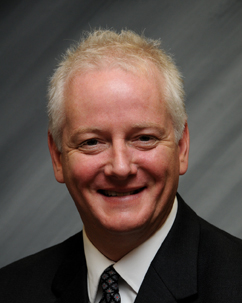
|
|
Vol. LXV, No. 29
|
Wednesday, July 20, 2011
|
 IN BALANCE: “We believe that there are so many cases of ADHD and other neurological disorders affecting children because the brain is not in balance. The closer to balance you are, the better the brain will function.” Dr. Vincent Kiechlin, DC, DACNB, is Director of the Brain Balance Achievement Center of Princeton. |
In many Asian traditions, balance is considered the key to a healthy and successful life. Western culture is beginning to see the value of this belief, as more and more people in our high tech and rushed society seek alternatives to drug-based medical treatment and trips to the psychiatrist! Yoga, acupuncture, meditation, and many forms of exercise are found to be beneficial to the achievement of a more balanced approach to life.
Dr. Robert Melillo, creator and co-founder of Brain Balance Centers, has taken this concept to a new level. A chiropractor neurologist, professor, author, and researcher in childhood neurological disorders and father of a child with ADHD, Dr. Melillo believes that many disorders, such as ADHD (Attention Deficit/Hyperactive Disorder), autism, Asperger’s Syndrome, dyslexia, and Tourette Syndrome, are associated with an imbalance in the development of the left and right sides of the brain.
Communication Problem
When either side of the brain develops at a different rate, an imbalance or disconnect occurs, causing learning and behavioral problems. This is called Functional Disconnection Syndrome (FDS).
“The concept of a disconnection syndrome actually dates back to the end of the 19th century when scientists became aware that certain neurological conditions are the result of a communication problem between the left and the right hemispheres of the brain rather than an injury to one specific area,” notes Dr. Melillo in his book Disconnected Kids.
The rise in childhood neurological disorders is so alarming that in 2007, the Centers for Disease Control and Prevention called it a “major health threat.”
Today, ADHD is “the most prevalent childhood problem throughout the world,” reports Dr. Melillo in his book. “Last year, doctors in the United States wrote an estimated 20 million prescriptions for Ritalin. And this estimate is conservative. ADHD is the leading childhood disorder in the world, and Ritalin is the most widely prescribed medication for children. The drug is becoming so commonplace it is even prescribed for children as young as age four.”
As with any medication, side effects can occur, he adds, and the long-term consequences on the developing mind are still unknown.
Autism is another condition on the rise, he points out. “Autism, which 10 years ago was considered a rare disorder, affects one out of every 150 children born. Just 10 years ago, the prevalence of autism was one in every 10,000. And it strikes twice as many boys as it does girls.”
One Out of Six
In addition, he continues, 1.5 million children entering school — one out of every six 5-year-olds — will be diagnosed with some type of neurological disorder that affects the ability to learn and socially interact.
After years of studying this phenomenon and helping more than a thousand children overcome these challenges, Dr. Melillo established the Brain Balance Program. There are now 60 Brain Balance Achievement centers in the U.S. The most recent, Brain Balance Achievement Center of Princeton at 21 Route 31 North in the Straub Center, in Shoppes at Pennington, opened in May.
“This is the first one in New Jersey” says Center Director Dr. Vincent Kiechlin, DC, DACNB. A chiropractor neurologist who practices in Princeton and Bernardsville, Dr. Kiechlin is strongly convinced of the importance of brain imbalance in these childhood disorders.
“I want people to realize that I know this works. I’ve seen it work, and I have seen the success it brings.”
The Center treats children in kindergarten through 12th grade, he explains. The first step in the treatment process is a comprehensive 4-hour evaluation (two hours for cognitive testing, two for sensory motor). Nutrition is another area for evaluation, if parents wish. Children with neurological disorders can also frequently experience food sensitivity, notes Dr. Kiechlin.
“Through the evaluation, we can determine whether there is an imbalance, and if so, we will create a program that is individually tailored to the patient. Once you get stimulation to the part of the brain that is not functioning as well, the better it will be for the child. Stimulation includes visual exercises, auditory exercises, and motor sensory exercises.”
Kids come three times a week for one hour for 12 weeks, and Dr. Kiechlin, who oversees each program, notes that improvement can be evident in three to six months.
Evaluation is continued throughout the program to assess the patient’s progress. Homework, including mental and physical exercises, is also part of the treatment.
An Epidemic
“When the brain is balanced, the child will feel more comfortable than before,” explains Dr. Kiechlin. “There will be behavioral differences, including being more comfortable socially as well as experiencing academic improvement.”
A father of four, Dr. Kiechlin is dedicated to doing all he can to help children afflicted by these problems. “New Jersey has more incidences of ADHD than any other state,” he reports. “One in 150 kids have symptoms. This is an epidemic. I really want to see our program become mainstream for children with these problems. It is so important.
“Also,” he continues, “I enjoy knowing that we’re not only helping the kids but the whole family. My biggest surprise has been how much our program helps the entire family. One mother told me after we had worked with her autistic son: ‘This was the first Christmas we have enjoyed together as a family.’
“Please check us out and see what we are doing to help kids.”
Brain Balance Center of Princeton is open Monday, Wednesday and Friday noon to 7 p.m. for kids training sessions and Tuesday and Thursday by appointment for evaluations. Evening presentations by Dr. Kiechlin are also available. (609) 737-1310. Website: www.braincenters.com.